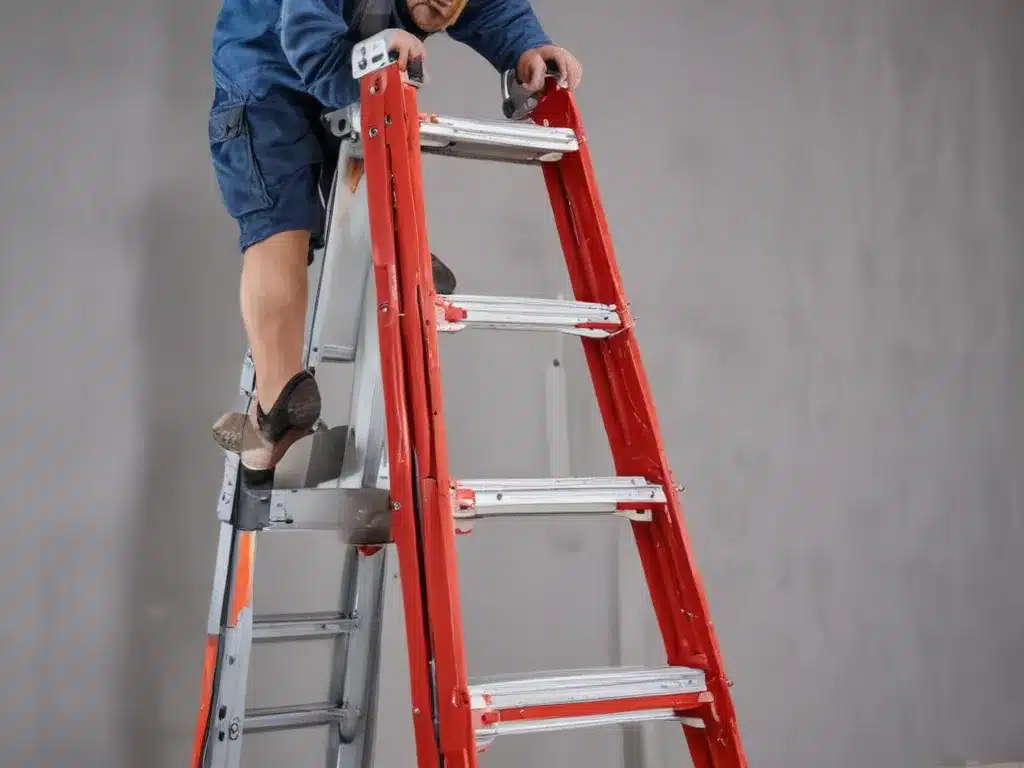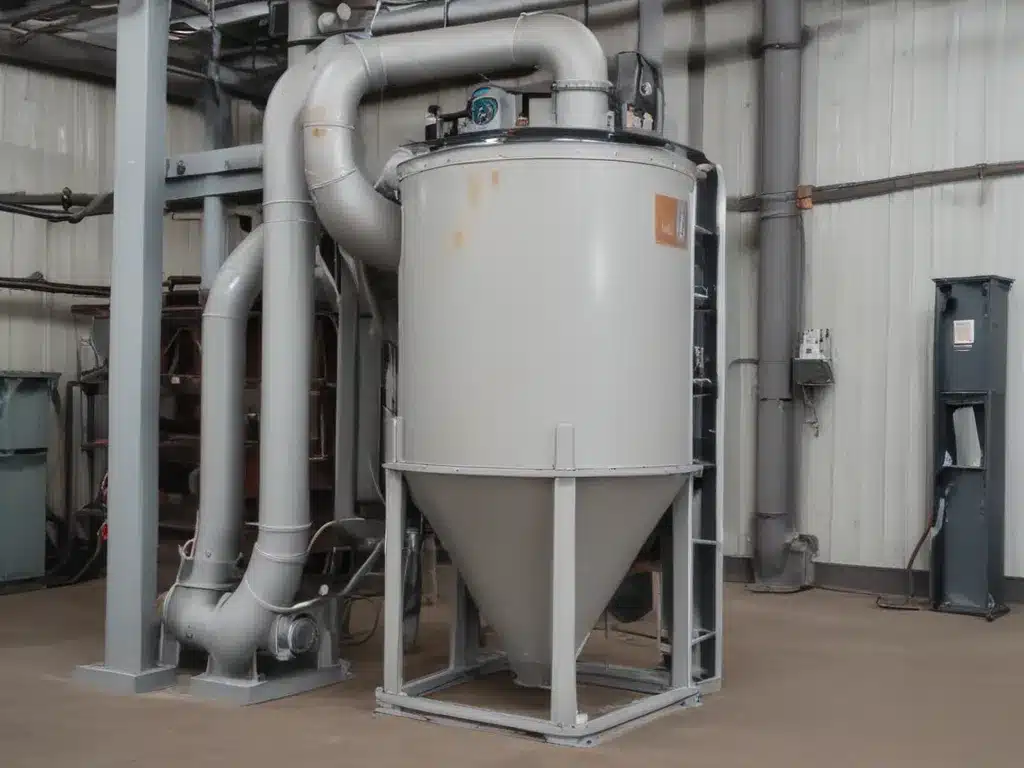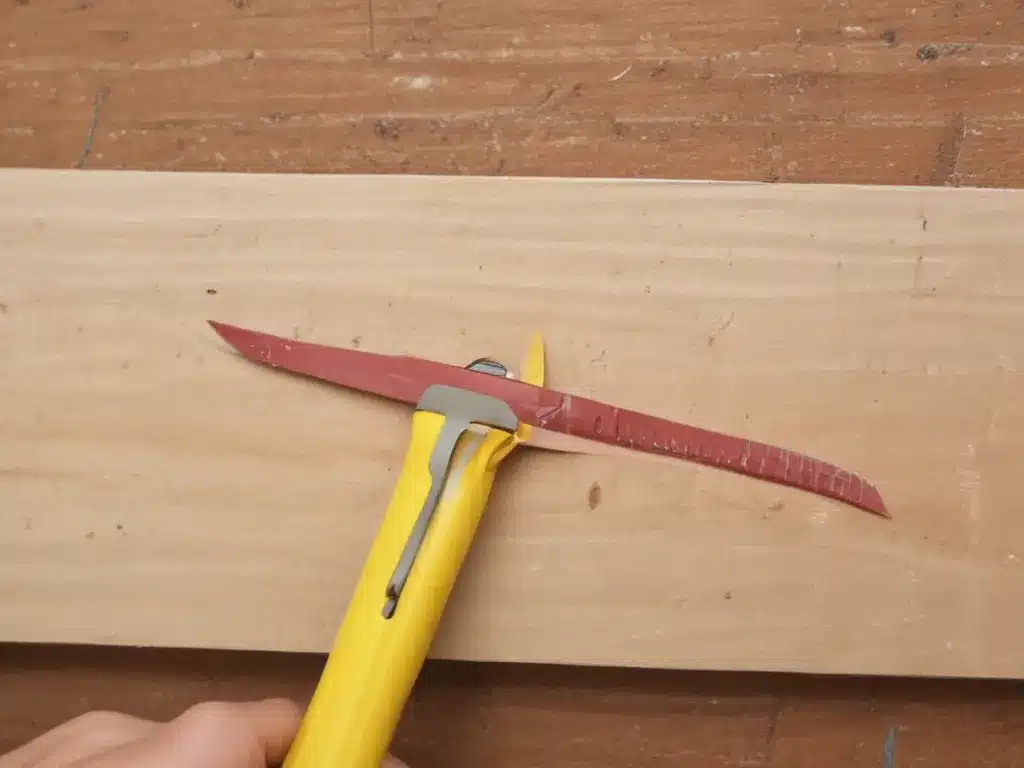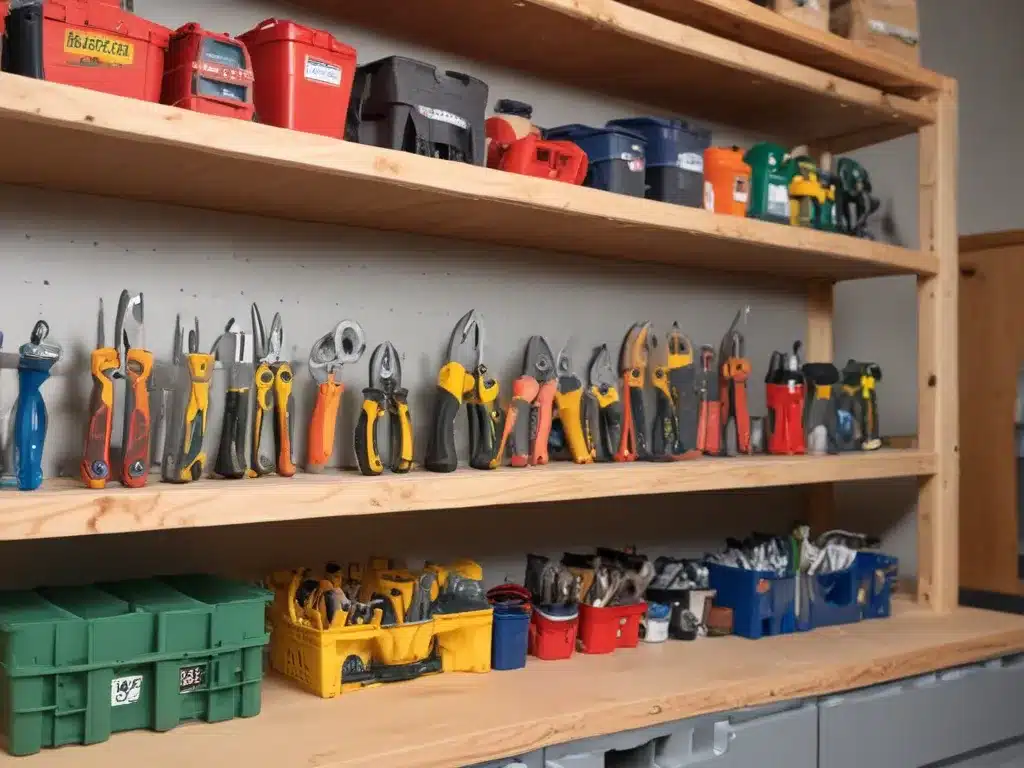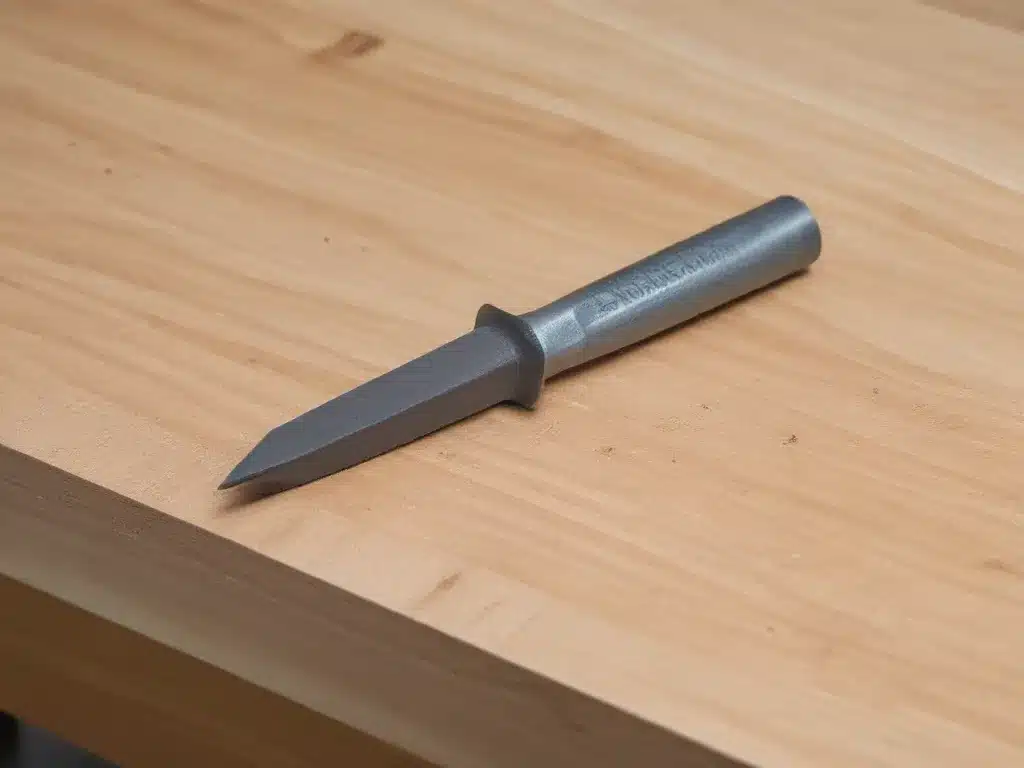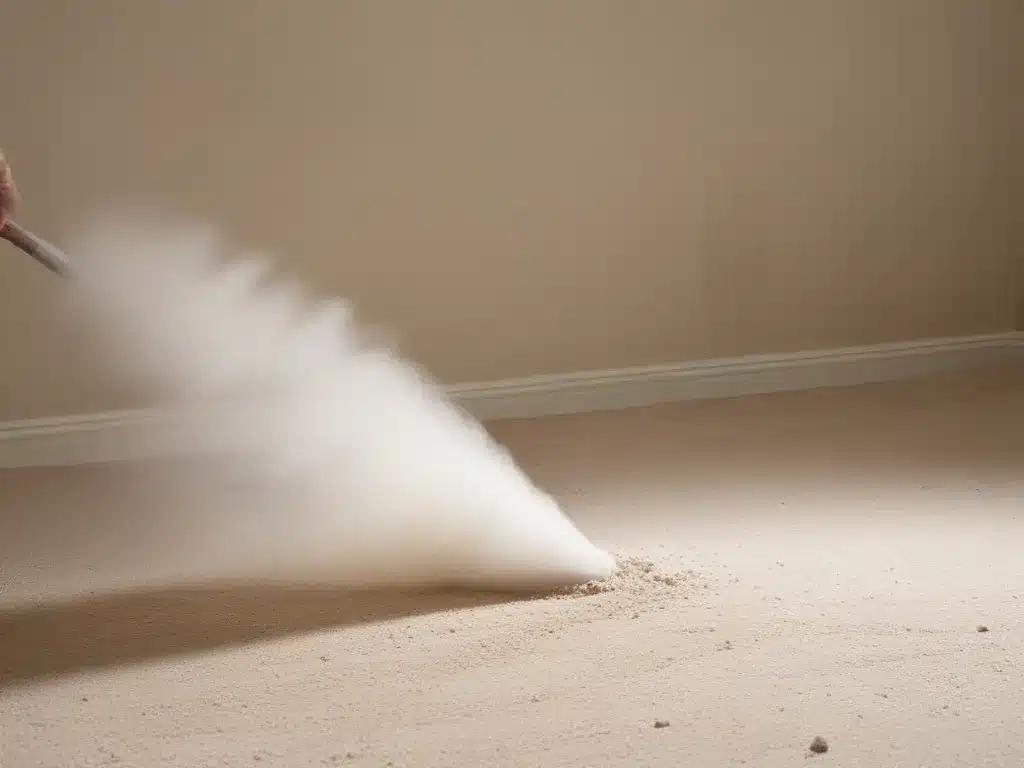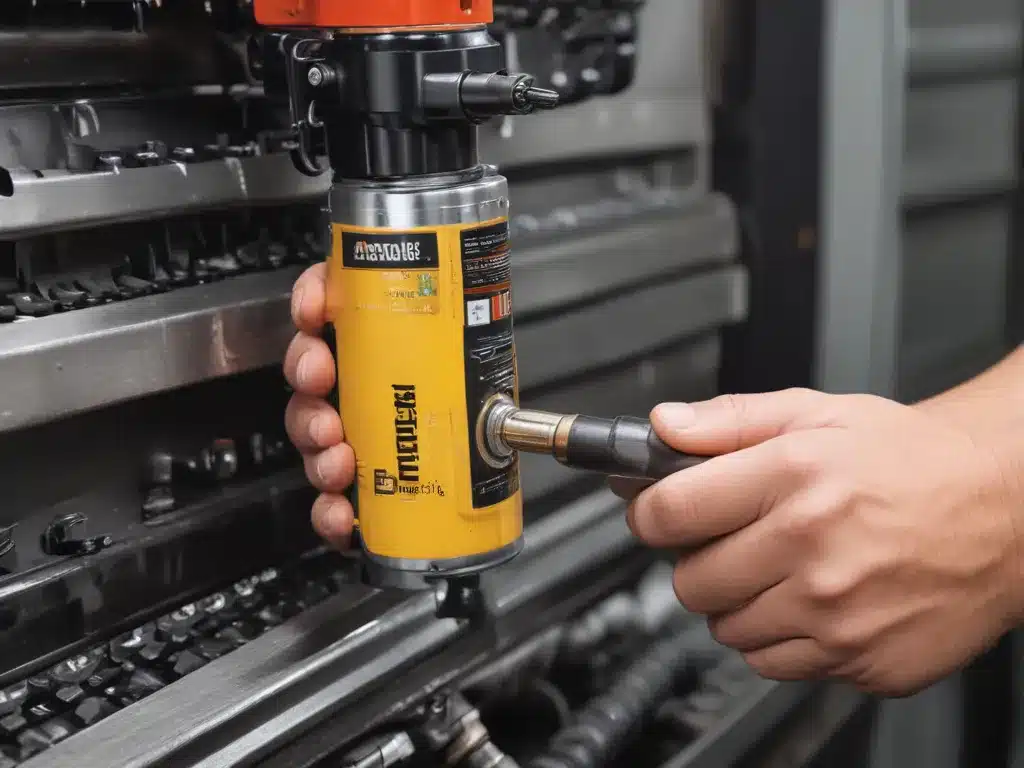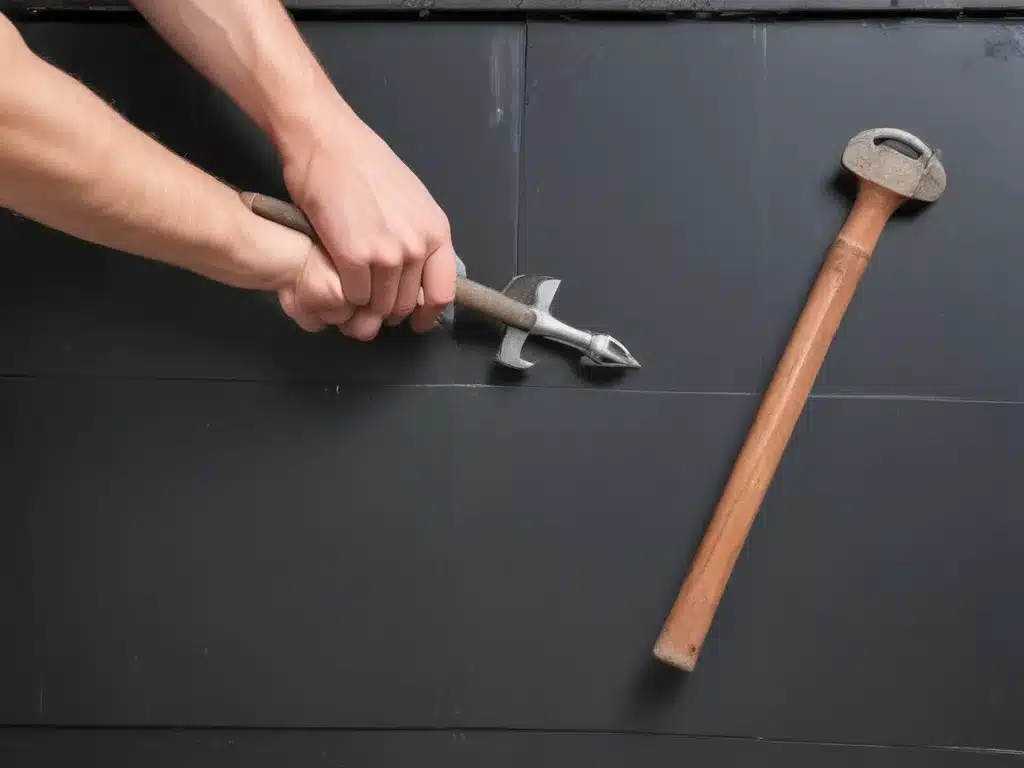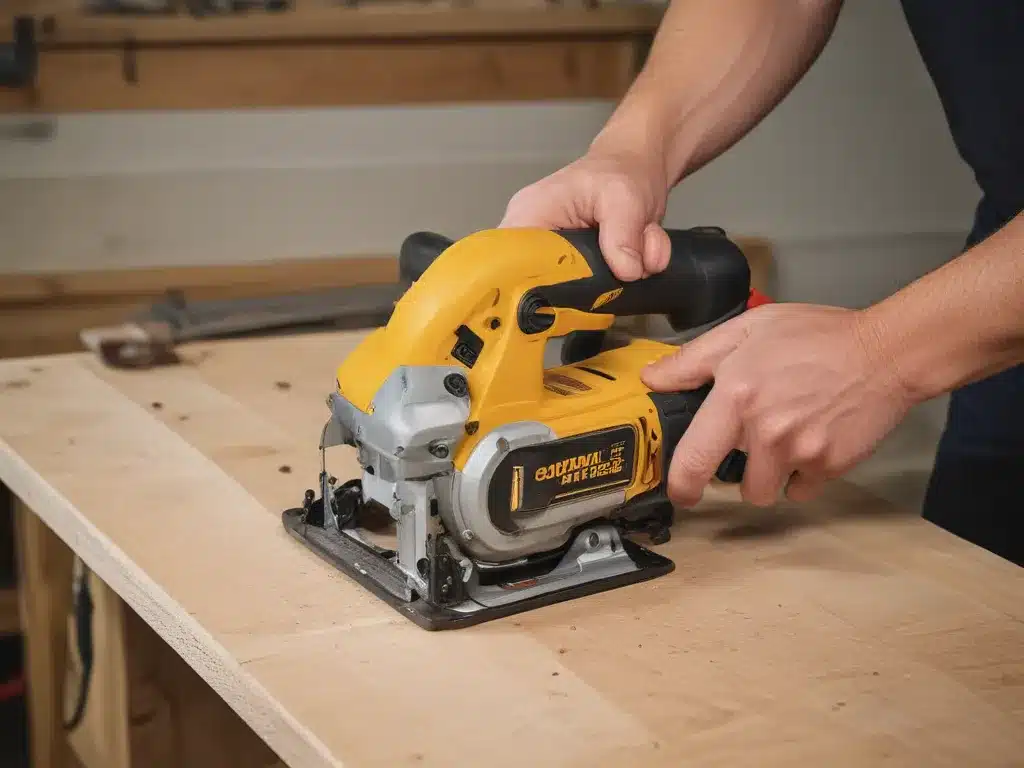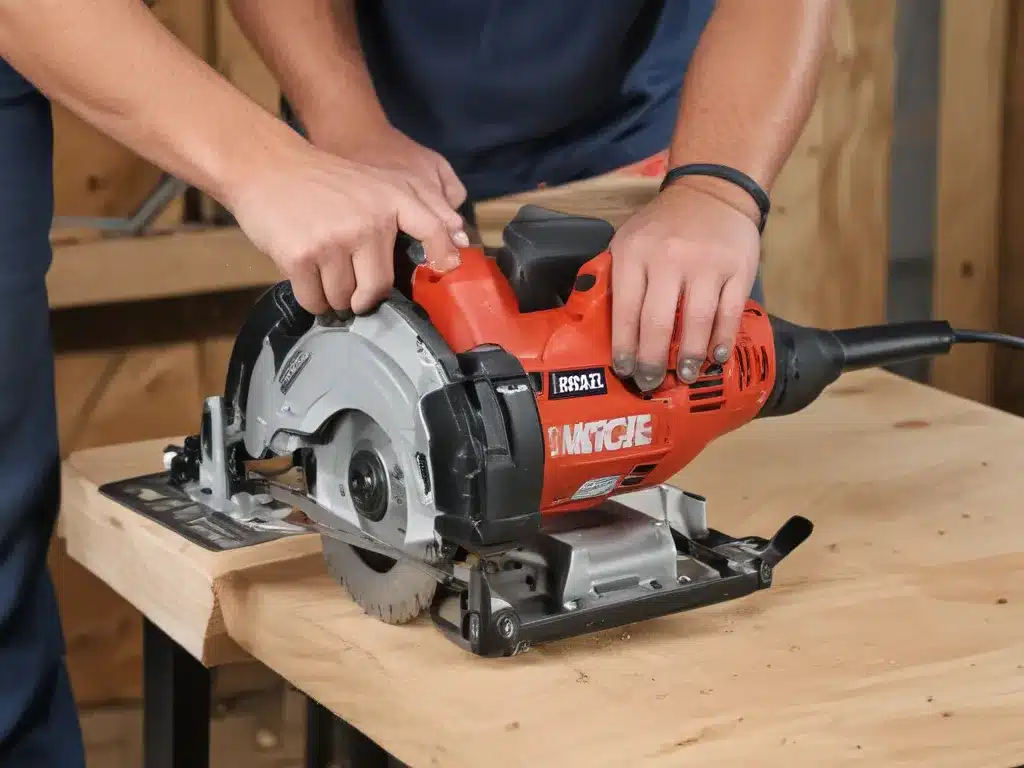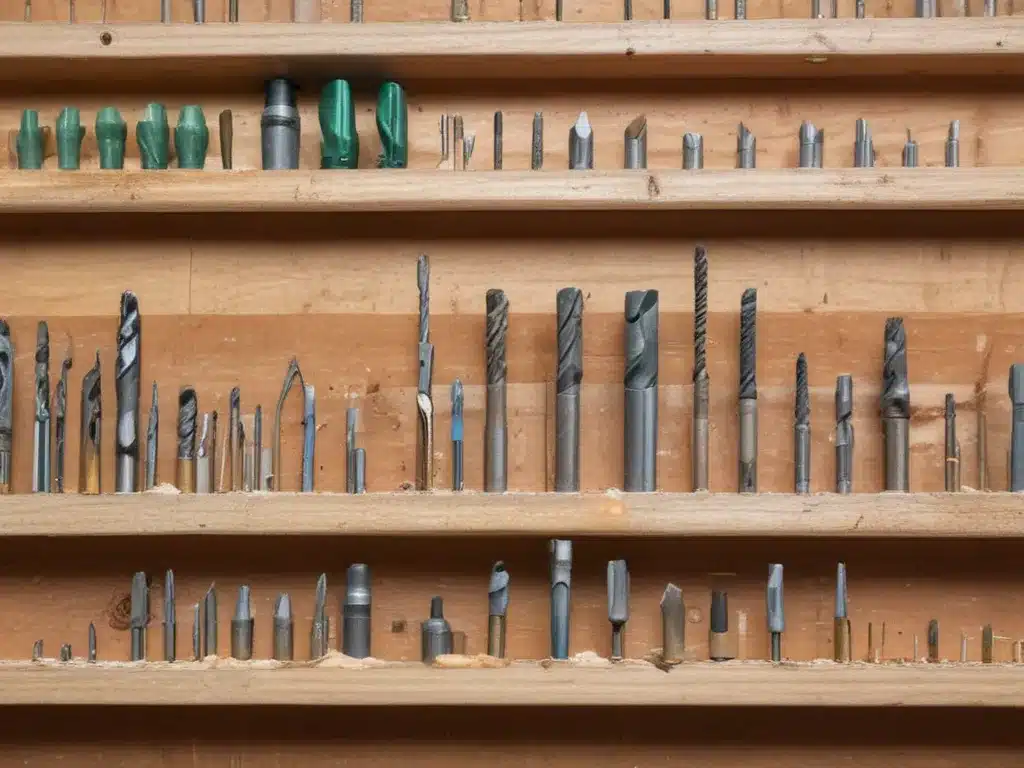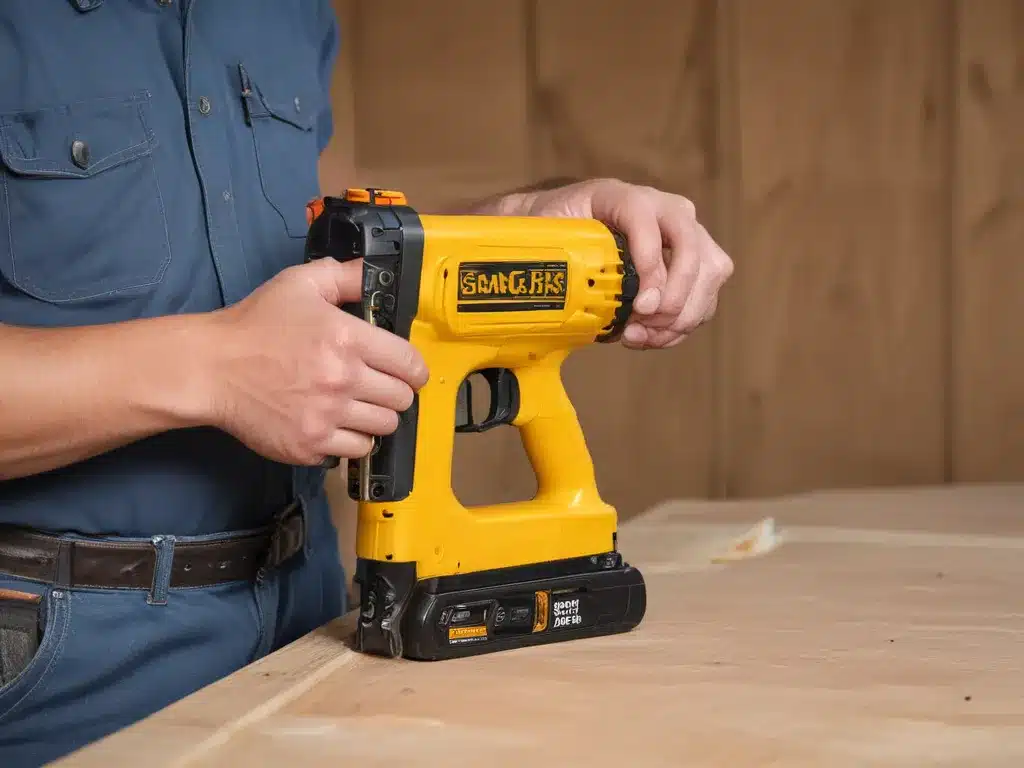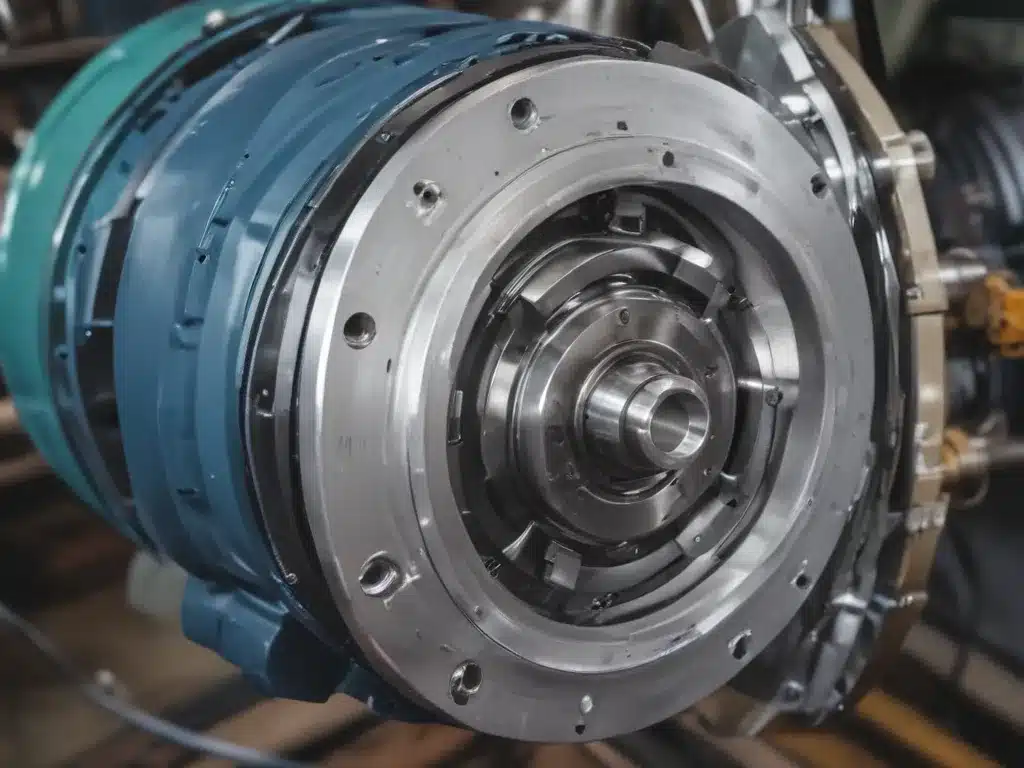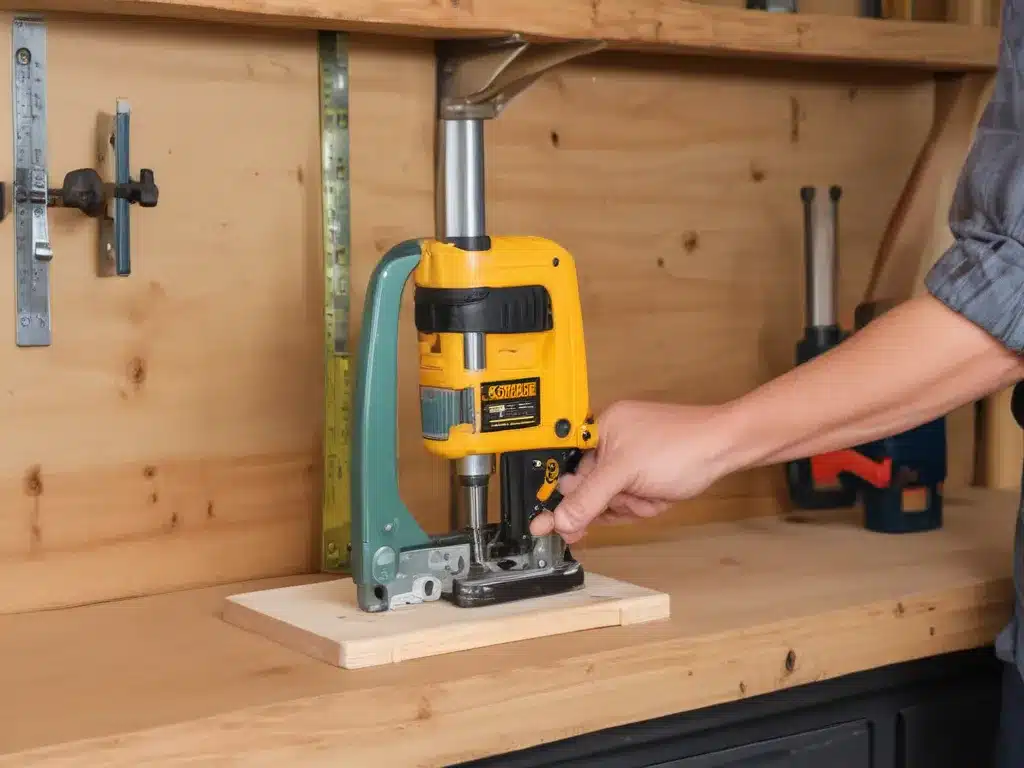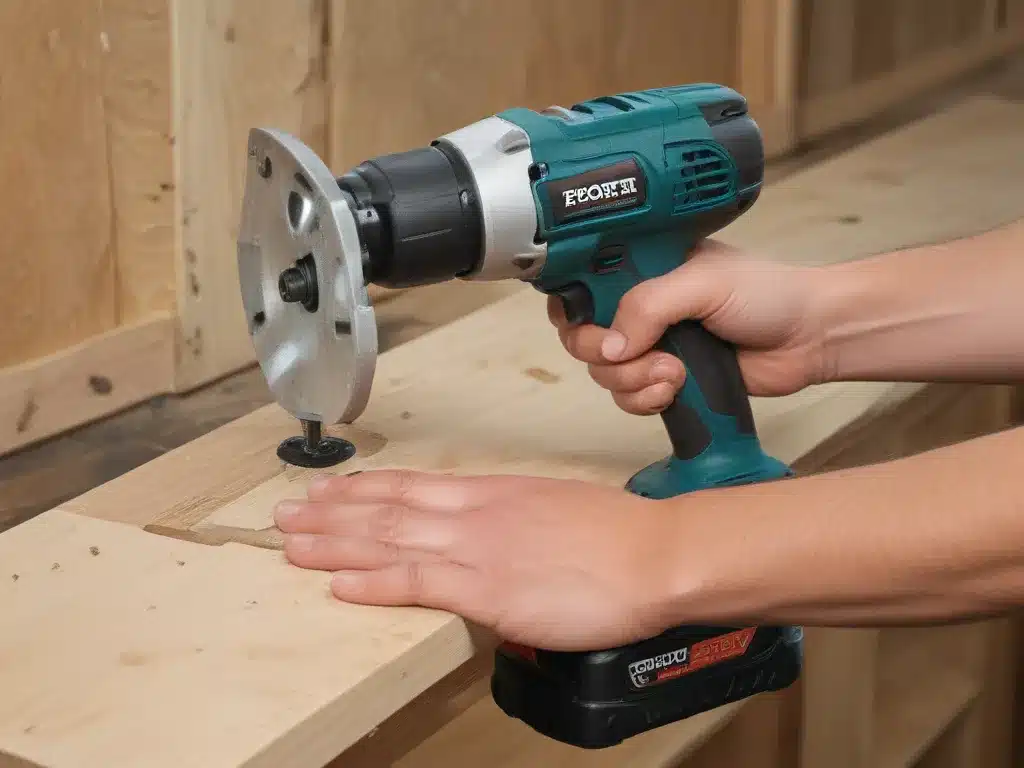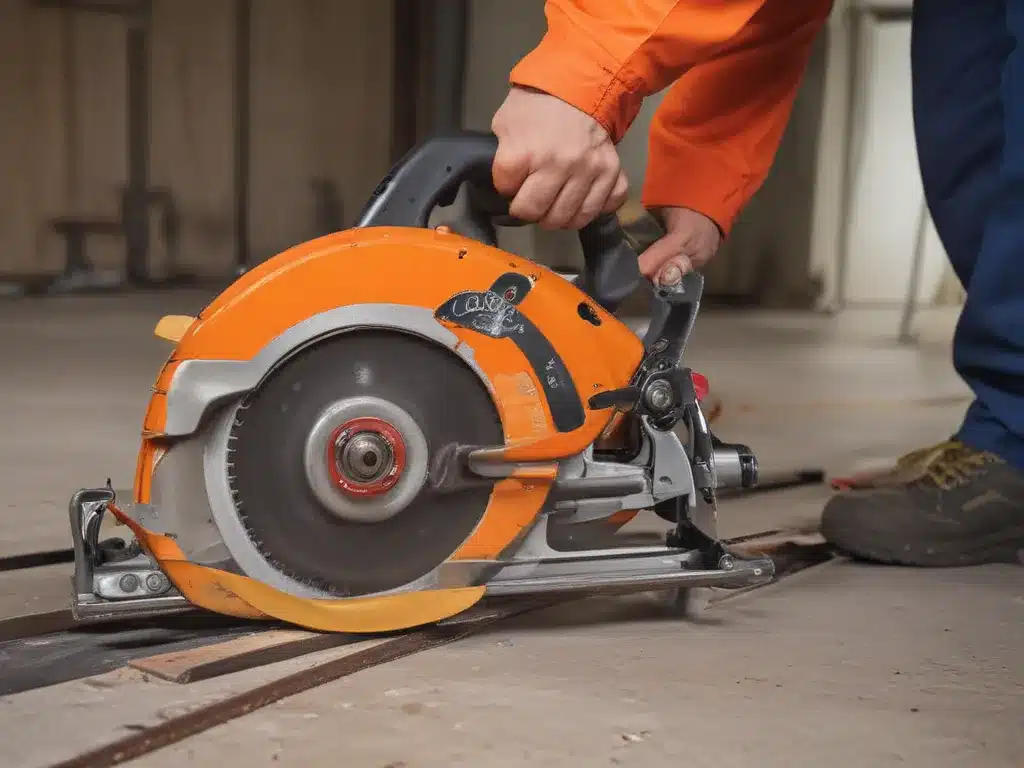Unleash the Power of Planers: Unlocking the Secrets to Smooth, Flawless Woodworking
Ah, the humble planer – the unsung hero of the woodworking world. As a self-proclaimed power tool enthusiast, I can tell you that these little machines pack a mighty punch when it comes to transforming rough, uneven lumber into smooth, gleaming masterpieces. Whether you’re a seasoned woodworker or a DIY novice, having a reliable planer in your arsenal can make all the difference in your projects.
But with so many different types of planers out there, it can be downright daunting to figure out which one is the best fit for your needs. Fear not, my friends! In this comprehensive buying guide, I’m going to take you on a deep dive into the world of planers, exploring the various types, their unique features, and how to choose the perfect one for your workshop.
Benchtop Planers: The Workhorses of the Workshop
Let’s start with the bread and butter of the planer world – the benchtop planer. These compact, powerful machines are the go-to choice for many woodworkers, thanks to their impressive performance and relatively affordable price tag. Benchtop planers are designed to sit securely on a workbench or table, making them a space-saving option for those with limited workshop real estate.
One of the standout features of benchtop planers is their ability to handle a wide range of lumber thicknesses, from thin boards to chunky timber. With their powerful motors and sharp, high-speed blades, these planers can quickly and efficiently level out even the most stubborn boards, leaving behind a silky-smooth finish that’s ready for further finishing.
But don’t let their diminutive size fool you – these little guys pack a serious punch. Many benchtop planers boast impressive cutting depths, allowing you to tackle even the most substantial projects with ease. And with the addition of innovative features like dust collection systems and automatic feed rollers, benchtop planers have become increasingly user-friendly, making them a popular choice for both professionals and hobbyists alike.
Of course, as with any power tool, there are a few downsides to consider. Benchtop planers can be a bit noisy and may require more frequent blade maintenance than their larger counterparts. But for the average woodworker, these minor inconveniences are a small price to pay for the convenience and versatility that a benchtop planer provides.
Portable Planers: The Planing Powerhouses on the Go
Now, if you’re the type of woodworker who’s always on the move, or if you need to tackle projects in tight spaces, portable planers might just be your new best friend. These compact, lightweight machines are designed to be easily transported from job site to job site, allowing you to achieve a flawless finish no matter where your woodworking adventures take you.
One of the key advantages of portable planers is their maneuverability. Unlike bulky benchtop models, these planers can be easily carried with one hand, making them a breeze to move around your workspace or even to a remote location. And with their robust construction and durable components, portable planers can withstand the rigors of the job site without missing a beat.
But don’t let their small stature fool you – portable planers are mighty in their own right. Many of these machines boast impressive cutting depths and blade widths, allowing you to tackle a wide range of projects with ease. And with the inclusion of innovative features like dust collection systems and adjustable depth settings, portable planers have become increasingly user-friendly, making them a must-have for any on-the-go woodworker.
Of course, as with any power tool, there are a few trade-offs to consider. Portable planers may not have the same raw power or capacity as their benchtop counterparts, and they may require more frequent blade maintenance to keep them running at peak performance. But for those who value mobility and versatility above all else, a portable planer is a small price to pay for the freedom to work wherever the wood takes you.
Thickness Planers: The Ultimate in Precision and Control
Now, if you’re the type of woodworker who demands the utmost in precision and control, then a thickness planer might be the perfect addition to your workshop. These beefy, industrial-grade machines are designed to handle even the most demanding planing tasks, from leveling thick hardwood boards to fine-tuning the thickness of delicate veneers.
One of the standout features of thickness planers is their impressive cutting depth and blade width. These machines are built to handle lumber of all shapes and sizes, from delicate hardwoods to chunky timbers, with ease. And with their powerful motors and high-speed blades, thickness planers can quickly and efficiently transform even the most unruly boards into smooth, perfectly uniform pieces.
But the real magic of thickness planers lies in their unparalleled precision. These machines are equipped with a range of advanced features, from digital depth readouts to automated feed systems, that allow you to fine-tune the thickness of your workpieces with micron-level accuracy. Whether you’re working on high-end furniture, custom cabinetry, or intricate woodturning projects, a thickness planer can help you achieve the level of precision and control you need to create truly stunning results.
Of course, as with any top-of-the-line power tool, thickness planers come with a price tag to match. These machines are typically more expensive than their benchtop and portable counterparts, and they also require a bit more space in your workshop. But for the discerning woodworker who demands the very best, a thickness planer is a worthy investment that can take your projects to the next level.
Specialty Planers: Niche Tools for Unique Needs
But the world of planers doesn’t stop there, my friends. In fact, there’s a whole host of specialized planer types designed to tackle specific woodworking tasks with unparalleled precision and efficiency.
Take, for example, the edge planer. These specialized machines are designed to precisely trim and smooth the edges of boards, making them an indispensable tool for woodworkers who need to create perfectly flush, seamless joints. With their ultra-sharp blades and advanced depth controls, edge planers can help you achieve a level of precision that would be nearly impossible to replicate with handheld tools.
Another example of a specialty planer is the jointer planer. These machines are designed to straighten and flatten the faces of boards, preparing them for subsequent steps in the woodworking process. With their long, flat beds and powerful motors, jointer planers can help you transform even the most warped and uneven boards into smooth, straight pieces that are ready for further processing.
And let’s not forget about the humble hand planer. While they may not have the raw power of their motorized counterparts, these manual tools are essential for fine-tuning and finishing work, allowing you to achieve a level of control and precision that simply can’t be matched by power tools. Whether you’re shaping delicate moldings, creating custom joints, or blending the edges of your workpieces, a good hand planer is a must-have in any woodworker’s arsenal.
Choosing the Right Planer for Your Needs
So, now that you’ve got the lowdown on the different types of planers out there, how do you go about choosing the right one for your workshop? Well, it all comes down to a careful consideration of your specific needs and the types of projects you’ll be tackling.
Are you a hobbyist who needs a compact, easy-to-use planer for occasional DIY projects? Then a benchtop model might be the perfect fit. Are you a professional woodworker who needs the ultimate in precision and control? Then a top-of-the-line thickness planer is probably the way to go. Or maybe you’re someone who’s always on the move, in which case a portable planer could be the ideal solution.
Regardless of your needs, there’s a planer out there that’s perfect for you. And when it comes to finding the right one, the key is to do your research, read reviews, and think carefully about the specific features and capabilities that are most important to you.
Of course, I can’t forget to mention our friends over at https://powertoolspros.net/ – they’ve got a fantastic selection of top-quality planers and all the accessories you’ll need to keep your workshop running smoothly. And, as a power tool enthusiast myself, I can attest to the fact that their products are built to last, with a level of craftsmanship and attention to detail that you just can’t find anywhere else.
So what are you waiting for? Whether you’re a seasoned woodworker or a DIY newcomer, it’s time to unlock the power of the planer and take your projects to the next level. Happy planing, my friends!


